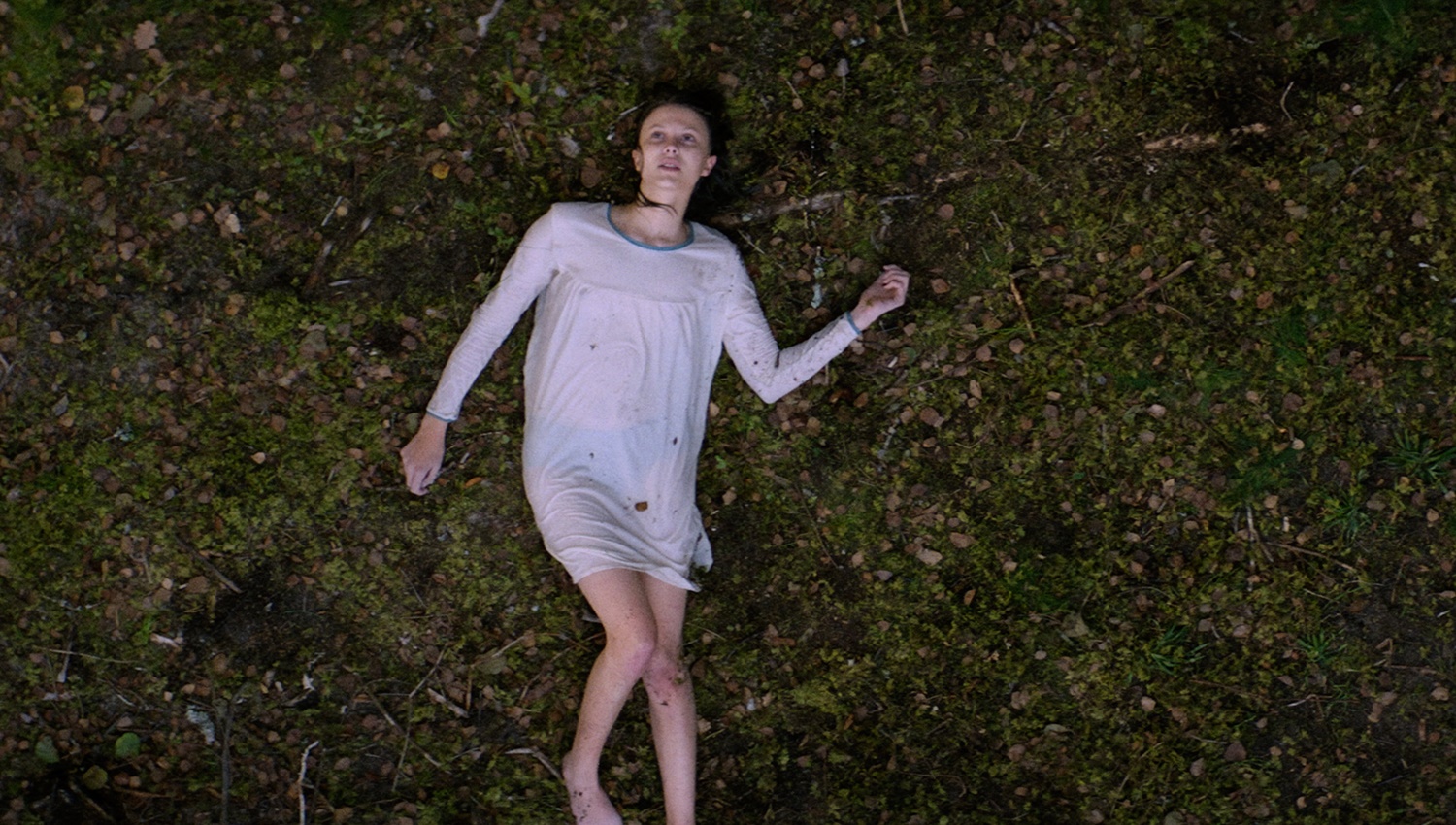
Thelma
Dustin Chase
Norway’s entry to the 90th Academy Awards shouldn’t be defined by that status. In fact, Thelma has such an ideal blend of science fiction, horror and suspense, it makes it one of the more enjoyable and recommendable genre films of the season. Thelma comes to us from the director of Louder than Bombs, which showcased Joachim Trier experience in unconventional narrative storytelling within the confines of the dramatic genre. Thelma weaves the audience through a tale of suspense, only hinting at the supernatural just enough to elevate our suspicious and keep us begging for more information. Eili Harboe (The Wave) is quite good as a Rooney Mara type, simplistic on the outside but offering so much more with her expressions.
It’s her first semester in college and indeed her first experience away from her sheltered life with conservative, religious parents. Thelma (Harboe) exercises her right to explore and indulge in curiosity’s forbidden at home. She tries cigarettes, alcohol, parties and clubs, but when fellow student Anja (Wilkins) sits beside her, something happens to her brain. The two women become friends, but Thelma comes to realize their feelings go beyond normal friendship. Thelma begins having seizures more often, seeking medical treatment as their severity worsens. What she discovers is information on her childhood that’s been hidden and repressed. The more she tries to restrain her feelings the more dangerous she becomes.
Thelma will work for open minded audiences seeking original and unusual experiences.
There is so much about the mood that Joachim Trier creates that adds to the experience of Thelma. Yes, the first fifteen minutes is admittedly difficult to get into. But the very first opening sequence is a terrifying prelude to the events yet to come. Once we see where this film is going (or at least think we do), things become very engaging. In its own fantastical way, Thelma is a bit of a coming of age story, with an added sexuality discovery theme, along with repressed youth notes. Trier’s movie might not always hit the greatest high notes, but it’s both entertaining and intellectually stimulating.
The production design isn’t much to speak of, actual locations and college campuses are used. The cinematography isn’t anything thoroughly breathtaking, although there are a few moments that stick out mostly due to location. Weather always plays a very big part in these Scandinavian films, and that’s certainly true for Thelma. The original score by Ola Fløttum (for) is one of the years most haunting and evasive composures. Thelma will work for open minded audiences seeking original and unusual experiences, while those expecting something straight forward and concrete will likely be both confused and tormented by the slower pace and beautiful restraint that’s practiced.
Final Thought
Despite a slow start, Thelma toys with genres in a terrifyingly beautiful retrained manner.
